When a loved one has died at Home
Mak ing arrangements following a bereavement

NHS Royal Devon University Healthcare NHS Foundation Trust

“Memories are the loveliest thing, They last from day to day, They can’t get lost; They don’t wear out, And can’t be given away.”
(Anonymous)
Information in this booklet 1. Information to help you during a bereavement .............. 2 2. What to do if someone dies at home ............................................ 3 3. Funeral Directors .................................................................................................. 4 4. Medical Examiner’s Team 5 5. Collecting the Medical Certificate of Cause of Death 6 6. Dealing with the Coroner (if applicable) 7 7. Tissue donation ........................................................................................................ 8 8. Arranging to see your loved one ........................................................ 9 9. Registering the death ....................................................................................... 10 10. Other considerations 13 11. Other help available 14 12. Stopping Junk Mail to the recently deceased 16
Why should I plan ahead?
Planning ahead can help you receive the care you want, and can also help to make things easier for your partner and family when you are nearing the end of life.
Some things, such as telling people you love them or making a “memory box” for someone to remember you by, could help your family and friends in their bereavement after you die, but you do not have to do any of these things if you do not want to.
How can I plan ahead?
There is no set way of planning ahead, but there are some useful steps you can take.
You could also think about:
• starting the conversation with your partner, family, carers and health professionals
• exploring your options, such as where you can choose to be cared for – this will probably involve talking with health professionals and other experts, especially if you have any particular questions or worries
• thinking about what your wishes and preferences are
• refusing specific treatment, if you want to, using a legal document called an advance decision to refuse treatment
• legally appointing someone, called lasting power of attorney, to make decisions for you in case you are not able to do so yourself in the future
• letting people know your wishes through talking or writing them down, or both
1
1. Information to help you during a bereavement
We provide sympathetic support and assistance to bereaved relatives and carers to help them through the procedures following the death of a patient at home.
This booklet is designed to help you cope with these practical steps over the coming few days or weeks.
We are always willing to make this information available in other formats or languages.
If you need to receive this information in another format or in a language other than English, call us on 01392 402349 and we can discuss your needs.
How we can help
To ensure that the practical arrangements are handled in a caring, professional and timely manner the Community Nursing Team are able to signpost and support you in contacting the following people:
• Funeral directors (undertakers)
• GPs (General Practitioner)
2
2. What to do if someone dies at home
When expectedly someone dies at home during normal practice opening hours, you should call the person’s General Practitioner (GP). If you do not know the name of the GP, the person didn’t have a GP, or if the death happens outside normal GP practice opening hours, call 111 (the NHS none emergency number) instead.

In most cases when someone dies at home and it is expected, the GP will visit to certify the death and in most cases can provide a Medical Certificate of Cause of Death confirming the cause of death.
There are occasions when the GP will request a member of the Community Services clinical team to verify the person’s death. This verification process allows for the person’s care to be transferred to the Funeral Director. During the verification an examination will be carried out by the Clinical Community Service Team during which families can choose to observe the verification or not.
3
3. Funeral Directors
A funeral director is someone you can employ to help you with funeral arrangements.
They will book the venue and time that you would like the funeral to take place in.
They will also organise your chosen officiant for the service as well as taking care of most of the legal paperwork you need for a funeral.
You can contact a funeral director within a few hours of a death however collection can be arranged once the death has either been verified by a registered nurse or certified by a GP or out of hours Doctor. Due to the specialist nature of this service on occasions there can be a short delay whilst we ensure that the right health professional attends. If you are unsure of the wishes of the deceased regarding funeral arrangements you may find they have included this in their will.
Funeral directors are available during office hours, Monday to Friday 8.30am–5.00pm.
However, they can be contacted 24 hours a day, every day, for emergency calls.
4
4. Medical Examiner’s Team
Within a few days of the death, you will be contacted by the Medical Examiner’s Team, who are independent from the care your loved on has received.
The Medical Examiner Team will facilitate the completion of the Medical Certificate of Cause of Death (MCCD) with the GP who has been looking after them.
The Medical Examiner Team will be able to explain the cause of death, and aim to answer any questions and assist with any concerns you may have. The team will then be able to explain the next steps which will allow you to Register the death.
Once you have Registered the death the Registrar will produce the Certified copies of the Death Certificate. You will be able to buy as many as you wish, there is a charge for each.
The Medical Examiner Team can be contacted on 01392 408396.
5
5. Collecting the Medical Certificate of Cause of Death
This certificate is completed by the deceased’s GP at their surgery. A Medical Certificate of Cause of Death is a legal document that is taken to the Registry office and used to create the official Death Certificate.
You will need to liaise with the surgery to arrange a convenient time to collect the Medical Certificate.
You will be requested to make an appointment at a registry office so that the death can be registered.
When you go to the Registry Office they will produce as many copies of the Death Certificate as you would like. There is a charge for every Death Certificate that the Registry Office produce. The Registrar will also produce a green form which must be passed on to your chosen Funeral Director. This form is a notification that the death has been registered and there is no charge for this form.
6
6. Dealing with the Coroner (if applicable)
A Coroner is a government official who must investigate some but not all deaths. Coroners are usually lawyers who work within a framework of law passed by Parliament.
In certain circumstances, there is a legal requirement to inform the Coroner of a person’s death. For example,
• If a patient dies having had a fall or an accident
• If the death was sudden and unexpected
• If they had a recent operation
• If there is a possibility of it being an unnatural death
If there is a need to contact the Coroner, the Coroner will then decide if the GP can issue the Medical Certificate of Cause of Death, hold an inquest based on the information available from medical investigations or whether a postmortem is needed. If the Coroner requests a post-mortem, your permission is not required.
You may then contact the Coroner’s Officers at the mortuary on 01392 225684 for further information. The office is open Monday to Friday 9.00am to 4.00pm.
If a post-mortem is needed, the Coroner will issue a certificate to the Registrar once the cause of death has been established and enquiries are complete. It will be necessary to telephone the registrar in the first instance to ensure that the necessary paperwork has been received from the coroner prior to making an appointment to register the death. Please let your funeral director know if a post-mortem is being arranged.
If a post-mortem is not needed, the Coroner will inform the GP that the medical certificate can be issued.
7
7. Tissue donation
Tissue donation is similar to organ donation. Donating tissue for transplant means that many people may have their conditions cured.
Most people can be considered for tissue donation after death but there is only a short period of time for this to happen. The deceased person may have signed the Organ Donor Register, carried an organ donor card or even discussed donation with you during their lifetime, but even if they haven’t this is still possible.
If you wish to consider donation, eyes for corneal transplant may be donated up to 24 hours after death. Donation will not delay funeral plans or alter the appearance of the deceased.
Each donation can help at least two people to see again and sometimes more. Some people find that donating tissue for transplant can help the grieving process.
If you would like to discuss this further or find out more please contact any one of the following:
• The Mortuary Team on 01392 403060
• The NHS Blood and Transplant Service 0800 432 0559
• A doctor or nurse involved in the care of your relative
8
8. Arranging to see your loved one
Some people may wish to visit their loved one following death. This is a highly personal decision and you should give consideration to if, where and when to see the person that has died.
Relatives can arrange to see the deceased at the funeral home which is a less clinical environment. Should you wish to arrange to see your loved one please contact the funeral director to make an appointment.

9
9. Registering the death
Registering a death takes place at a Registrars Office. The Death Certificate is created at this appointment and the death is officially recorded.
Once you have collected the Medical Certificate of Cause of Death from the GP surgery it must be taken to the Registrar of Births, Deaths and Marriages in order to register the death (unless the Coroner is involved). If the Coroner is involved it will be necessary to telephone the Registrar in the first instance to ensure that the necessary paperwork has been received from the Coroner prior to making an appointment to Register the death.
In order to register the death you must be either a relative of the deceased or the person making the funeral arrangements.
You may wish to take someone along to support you whilst making the arrangements.
You may now register anywhere in Devon except Torbay or Plymouth as they are in separate Unitary Authorities and have their own registration services.
A Registrar will talk to you in private about the person who has died and you will need to know the following information:
• The full names and surname (correctly spelt) and the maiden surname if the deceased is a woman who had married
• Their date and place of death
• Their date and place of birth (it may be helpful to take their Birth Certificate)
10
• Their previous occupation (and if the deceased was a married woman or a widow, the name and occupation of her husband)
• Their usual address
• Whether they received a pension or allowance from public funds
• The date of birth of a surviving widow or widower if the deceased was married
• Their NHS (medical) card if available This information is entered into the register and the person registering the death must sign this with their usual signature, using special registrar’s ink. You will be required to read the entry so please make sure you have your reading glasses if you use them.
The Registrar offers a “tell us once” service which alerts other government agencies to a death.
You will then be given two forms:
A certificate of registration of death - Form BD8 (‘white form’). This is different from the Medical Certificate of Cause of Death. Please read the information on the back of the form, fill it in and send it to your local social security office.
The address of your local social security office can be obtained by ringing the Department of Work and Pensions national customer service number 0845 6060 265.
A certificate for burial or cremation (‘green form’). This is for your funeral director and authorises them to make arrangements on your behalf.
11
You will need to get copies of the death certificate for a number of official purposes. We cannot say how many you will need as individual circumstances vary, but as examples you may need copies for such things as insurance, premium bonds, bank accounts and private pensions.
There is a fee for providing copies of the death certificate: please ask us for advice of the current charges. Please note that there is no free copy of the certificate.

12
10. Other considerations
People you may need to notify:
Legal/Financial
q Bank/Building Society
q Solicitor
Employment/Pension
q Dept of Work & Pensions
q Social Security office
q Inland Revenue
Domestic & Personal
q TV Licensing
q Gas/Electricity/Water
q Newspaper/Milkman
q Telephone company
q Rental companies
Items that may need returning:
q Pensions/Benefits books
q Driving Licence
q NHS equipment on loan
q Store cards/loyalty cards
q Bus pass/blue badge
q Insurance companies
q Credit card companies
q Employer
q Trade Union
q Vehicle Licensing
q Council Offices
q Cancel appointments
q Clubs/Associations
q Royal Mail deliveries
q Passport
q National Insurance card
q Library cards/season tickets
13
11. Other help available
We want to support you through this difficult time.
As part of the Trust’s commitment to continuous improvement, we invite you to provide your views on the quality of care that your loved one received during their time with us. We are always happy to hear about experiences that have exceeded the expectations of patients and loved ones. We are also very keen to learn when we could have done better to meet the needs of our patients.
Where you wish thanks or praise to be passed on, we will ensure that happens. If you have concerns, we will look into the matter for you
Alternatively, you can contact,
• Face-to-face with the staff who have given you this booklet
• By telephone: the Patient Advice & Liaison Service (PALS) are contactable on 01392 402093 weekdays between 9:304:30
• Online: via the ‘Get in Touch’ button on the Trust website www.rdehospital.nhs.uk
• The Hospital Chaplaincy is a team of experienced Chaplains and volunteers drawn from a range of religious and belief traditions.
For details of our Chaplaincy service please call 01392 402024 or call the Hospital Switchboard on 01392 411611 and ask them to contact the Chaplaincy. You can leave a message at the Chaplaincy office next to the hospital Chapel, Level 2, Area E, RD&E Hospital (Wonford).
14
You can also ask your own Pastor, Minister, Priest or other religious or spiritual leader to contact them on your behalf.
You may wish to contact other services and organisations such as those listed below for ongoing help and support following your bereavement:
• Age UK Exeter 01392 202092
• Stop Mail (Is a service specifically designed to remove the names and addresses of people who have died from databases and mailing files)
Please visit www.stopmail.co.uk or collect a leaflet from the Bereavement Team.
• Care Direct 0345 1551 007
• Citizens Advice Bureau 03444 111444
• CRUSE Bereavement Care 0808 808 1677
• Compassionate Friends 0345 123 2304
• Devon Carers 0345 643 4435
• Samaritans 116 123
• SANDS (Stillbirth and Neonatal Death Society) 0808 164 3332
• Sudden Death Support Association 01484 559909
• Winston’s Wish 08088 020 021.
15
12. Stopping Junk Mail to the recently deceased
If someone you know has died, the amount of unwanted marketing post being sent to them can be greatly reduced which helps to stop painful daily reminders.
By registering with the free service www.stopmail.co.uk the names and addresses of the deceased are removed from mailing lists, stopping most advertising mail within as little as six weeks. If you cannot access the internet you can call 0808 168 9607, where you will be asked for very simple information that will take only a few minutes to complete.
This free of charge service provided by the Bereavement Support Network will actively reduce the unwanted marketing mail but also can help reduce the likelihood of identity theft following the death of someone close. The information is not used for any other purpose and you only have to complete this once. Additionally to Stop Mail a comparable service can also be accessed from the Bereavement Register or Deceased Preference Service if you would prefer to use them.
Booklet ref: TW/05 002 004
Review date: March 2025
Publication date: March 2023
16

The Hospital would like to thank RNS Publications for publishing this information and the following pages contain some features from local services o ering their help at this time.
Whilst the Hospital is grateful of their support it does not endorse or recommend any of the services that they provide.
It is distressing to deal with a bereavement and unsolicited mail can be insensitive and destructive during a grieving process.
By scanning the below QR code on your phone or visiting www.stopmail.co.uk, we are able to securely share this information with mailing organisations and under the Data Protection Act the information will not be used for any other purpose.
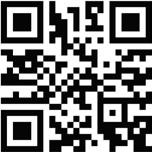
Other benefits reduce the possibility of identity fraud, such as assumed identity and you will only have to supply the information once.

�\\ bereavement ,�port network stopping mail STOPPING JUNK MAIL
www.stopmail.co.uk 0808 168 9607 from a landline 0333 006 8114 from a mobile © Bereavement Support Network Ltd 2023
BRITISH INSTITUTEOFFUNERAL DIRECTORS B.I.F.D










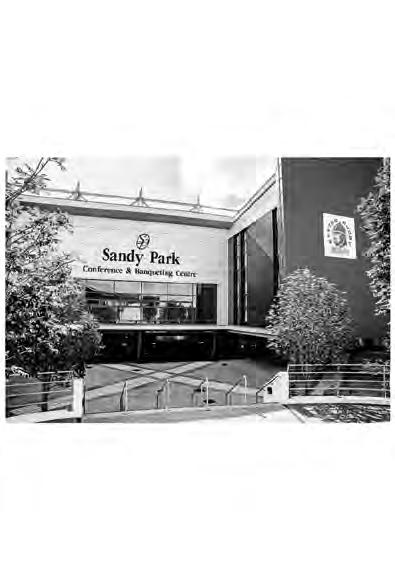
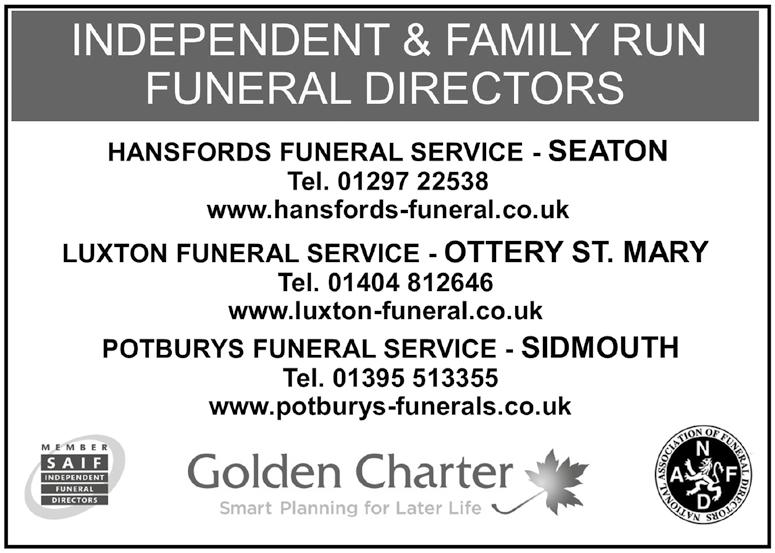
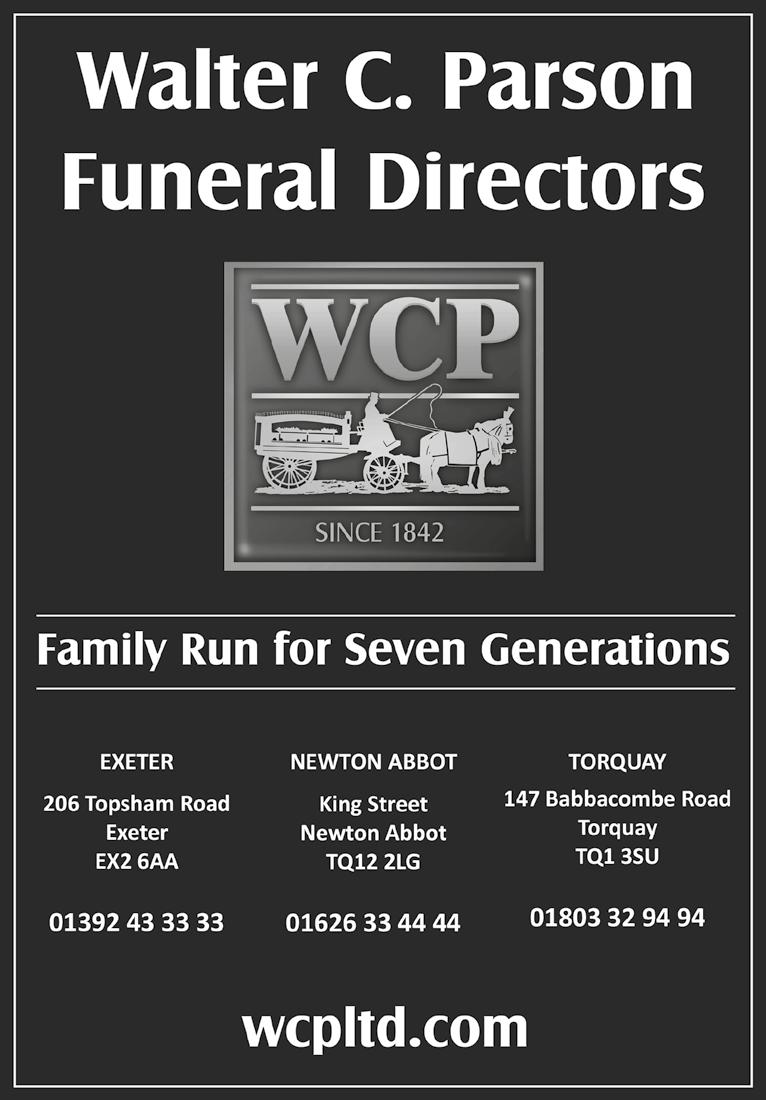
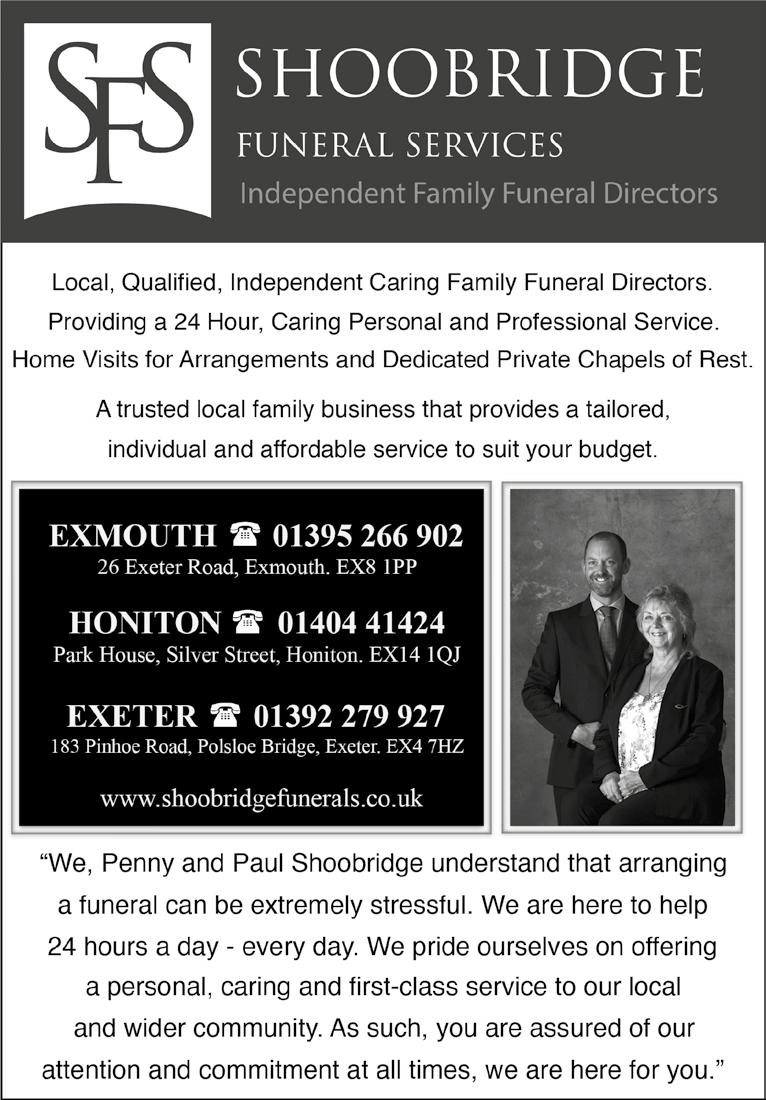
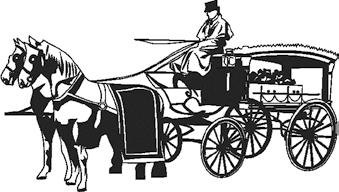
Published by RNS Publications © Tel: 01253 832400 R1



























